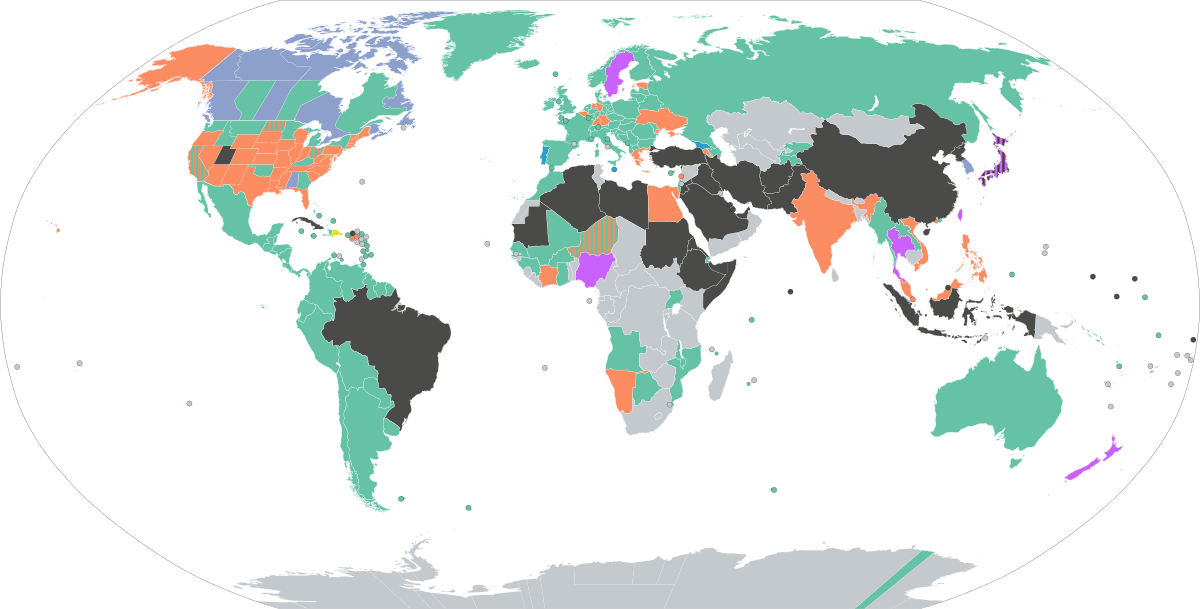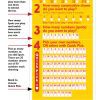Welcome to the world of gambling, where suspense, luck, and big wins await! If you’ve ever wondered, “What age is gambling legal?” then you’ve come to the right place. Whether it’s playing the slot machines, betting on sports, or trying your luck at a poker table, gambling can be incredibly exciting. But before you dive in, it’s important to know the legal age requirements. Let’s find out!
Gambling can be a thrilling experience, but it’s essential to understand the age restrictions that come with it. So, what age do you need to be to start gambling legally? Well, it varies depending on where you live. Different countries and jurisdictions have their own rules and regulations surrounding gambling.
In some places, like the United Kingdom, the legal gambling age is 18 for most forms of gambling. However, there are exceptions, such as the National Lottery, where you need to be 16 or older to play. Other countries, like the United States, have a minimum gambling age that ranges from 18 to 21, depending on the state and the type of gambling involved. So, before you place any bets, make sure you know the legal age in your area!
Now that you have a better understanding of the legal age for gambling, you can embark on your journey into the world of casinos, betting, and games of chance. Remember to always gamble responsibly and within the limits of the law. Whether you’re ready to roll the dice or try your luck at a roulette table, have fun and may the odds be ever in your favor!
Discovering the legal age for gambling is an important question for many individuals. Gambling age requirements vary across different jurisdictions, so it’s crucial to know the rules in your specific location. The legal age can range from 18 to 21 years old, depending on the country, state, or province. To ensure you comply with the law, always check the regulations set by your local authority. Stay informed and enjoy responsible gambling within the legal age limits!

What Age is Gambling Legal?
When it comes to gambling, age restrictions are put in place to ensure the protection and well-being of individuals, particularly minors. Different countries and jurisdictions have varying regulations regarding the legal age for gambling. In this article, we will explore the different age limits for gambling around the world, the reasons behind these restrictions, and the potential consequences for underage gambling.
Age Limits for Gambling in the United States
In the United States, the age at which individuals can legally gamble varies depending on the type of gambling activity and the state in which it takes place. In most states, the legal age to participate in lotteries, bingo, and pari-mutuel betting is 18. However, the legal age for casino gambling and online gambling is typically higher, ranging from 21 to 23 years old. These age limits are enforced to prevent the negative consequences of gambling on young individuals, such as addiction and financial problems.
Underage gambling is taken very seriously in the United States, and establishments that allow minors to gamble can face hefty fines and even the loss of their operating licenses. Additionally, underage gamblers may be subject to legal penalties, including fines or community service. It is important for parents, educators, and community members to educate young individuals about the potential risks of gambling and the legal implications of participating in these activities before they reach the legal gambling age.
International Age Restrictions for Gambling
While the age at which gambling is legal can vary significantly from country to country, there are some common trends and guidelines. In many European countries, the legal age for most forms of gambling is 18. This includes countries like the United Kingdom, Germany, France, Italy, and Spain. However, some countries, such as Greece and Portugal, have set the legal age for gambling at 21.
Outside of Europe, many countries follow a similar pattern of setting the legal gambling age at 18. For example, in Australia and New Zealand, individuals must be 18 years old to gamble in casinos or participate in online gambling. In Canada, the legal age for gambling also varies depending on the province, with most provinces setting the limit at 19.
Reasons for Age Restrictions
The implementation of age restrictions for gambling is based on several reasons. Primarily, it aims to protect young individuals from the potential harm associated with gambling, such as addiction, financial difficulties, and negative social consequences. Research has shown that the adolescent brain is particularly vulnerable to the addictive nature of gambling, making it crucial to restrict access to these activities until individuals are deemed mature enough to make informed decisions.
Furthermore, age restrictions help to prevent underage gambling and mitigate the associated risks. By enforcing legal age limits, authorities can ensure that gambling establishments and online platforms are not facilitating illegal activities or exposing young individuals to harm. Additionally, it promotes fair play and responsible gambling practices, as individuals who are of legal age are more likely to understand the potential consequences and act accordingly.
Consequences of Underage Gambling
Engaging in gambling activities before reaching the legal age can have serious consequences for young individuals. Apart from the potential legal penalties mentioned earlier, underage gambling can lead to the development of gambling addiction and financial problems at an early stage in life. This can have long-term impacts on an individual’s mental health, relationships, and overall well-being. Education and awareness around the risks of underage gambling are essential to prevent these negative outcomes.
Additionally, studies have indicated a correlation between underage gambling and other risky behaviors, such as alcohol and substance abuse. This highlights the importance of addressing underage gambling as part of a broader approach to promoting healthy and responsible decision-making among young individuals.
Support and Resources
For individuals who are struggling with a gambling addiction or who know someone who is, there are support networks and resources available. Helplines, counseling services, and support groups can provide guidance and assistance in overcoming the challenges associated with gambling addiction. It is important to seek help as early as possible to prevent the escalation of problems.
Furthermore, it is crucial for parents, guardians, and educators to have open and honest conversations with young individuals about the potential risks of gambling and the importance of waiting until the legal age to engage in these activities. By creating a supportive environment and providing accurate information, we can help young individuals make informed decisions and protect them from the potential harm of underage gambling.
The Impact of Age Restrictions on Gambling
… For example.
Tips for Promoting Responsible Gambling
… For example.
The Future of Age Restrictions in Gambling
… For example.
Key Takeaways: What Age is Gambling Legal?
- The legal gambling age varies by country and often by type of gambling activity. In many places, the minimum age is 18, while in others it’s 21.
- Some countries have different age restrictions for different types of gambling, such as casinos, lotteries, and sports betting.
- In the United States, the legal gambling age can vary by state. Some states set the minimum age at 18, while others require individuals to be 21 or older.
- It’s important to check the specific laws and regulations in your country or state to determine the legal gambling age.
- Underage gambling is illegal and can result in penalties, so it’s crucial to abide by the legal age restrictions.
Frequently Asked Questions
Welcome to our FAQ section where we answer common questions about the legal age for gambling.
1. Can I start gambling as soon as I turn 18?
In many countries, the legal age for gambling is indeed 18. However, it’s important to note that the age requirement can vary between jurisdictions. Some countries or regions may have a higher minimum gambling age, such as 21. It’s crucial to check the specific regulations in your location.
Additionally, different types of gambling activities may have their own age restrictions. For example, while you might be able to participate in lotteries or scratch-off games at 18, casino gambling or sports betting may have higher age requirements.
2. Why do some places have different minimum gambling ages?
The minimum legal gambling age can vary based on a number of factors, including cultural norms and local regulations. Different jurisdictions may have different perspectives on when an individual is considered legally responsible enough to engage in gambling activities. These regulations are in place to protect vulnerable individuals, such as young people, from the potential harm or negative consequences associated with gambling.
Furthermore, some regions may have legislation that aims to deter gambling-related issues among young adults by setting the minimum age higher than 18. These regulations often align with the legal drinking age or other age-restricted activities to ensure consistency in the law.
3. What happens if I gamble underage?
Gambling underage is generally illegal and can lead to various consequences. If you are caught gambling before reaching the legal age, you may face penalties such as fines or even legal charges. Furthermore, if you gamble underage and win money, you might not be able to collect your winnings.
It’s important to respect and adhere to the regulations concerning the legal age for gambling in your jurisdiction. Always wait until you have reached the appropriate age to ensure you are participating in gambling activities legally and responsibly.
4. Can I gamble online if I’m underage?
Online gambling platforms typically have strict age verification processes in place to prevent underage gambling. These platforms will often require you to provide identification documents to prove your age before you can create an account and start gambling.
Attempting to gamble online underage not only violates the regulations but is also likely to be unsuccessful since most reputable online gambling operators take their legal obligations seriously. It’s important to wait until you meet the legal age requirement before engaging in any form of online gambling.
5. How can I find out the legal age for gambling in my area?
To determine the legal age for gambling in your specific location, you can consult the regulatory agency responsible for overseeing gambling activities. This might be a government agency or a dedicated gambling commission that governs your jurisdiction.
You can usually find this information on the agency’s website or by contacting them directly. It’s always important to have accurate and up-to-date information before engaging in any form of gambling to avoid any legal issues. Remember, it’s better to be patient and wait until you reach the legal age to participate in gambling activities.
Bill could lower Nevada gambling age to 18
Summary
So, what age is gambling legal? It varies from country to country. Some places allow it at 18, while others set the age at 21. Make sure to check your local laws before even thinking about gambling. Remember, it’s best to play it safe and wait until you’re of legal age.









